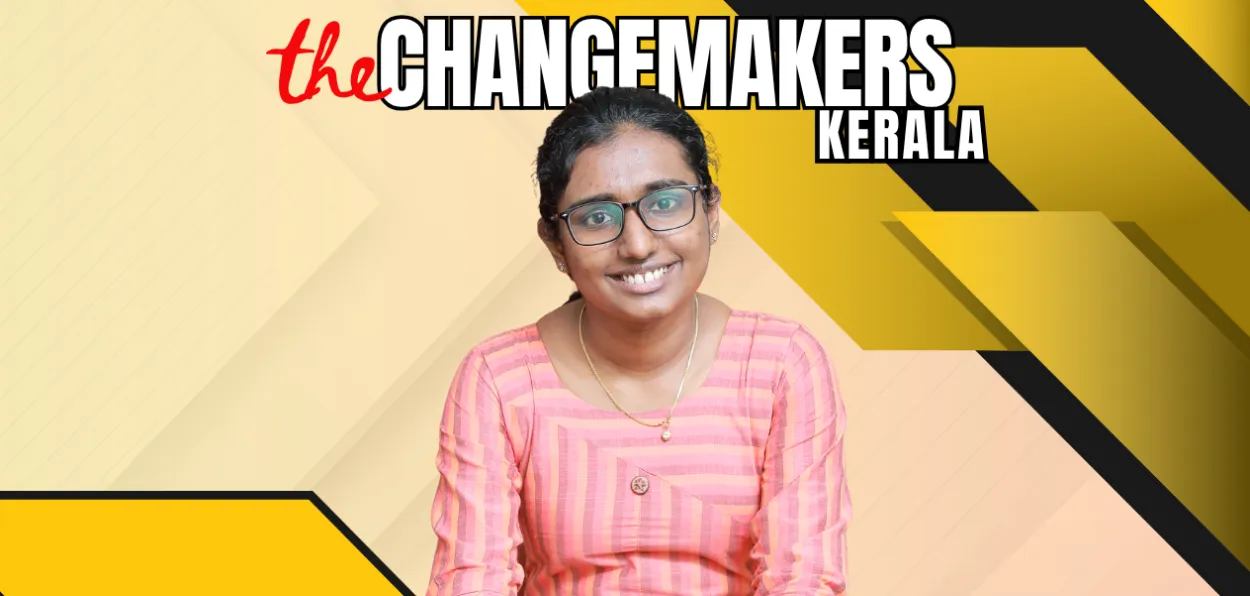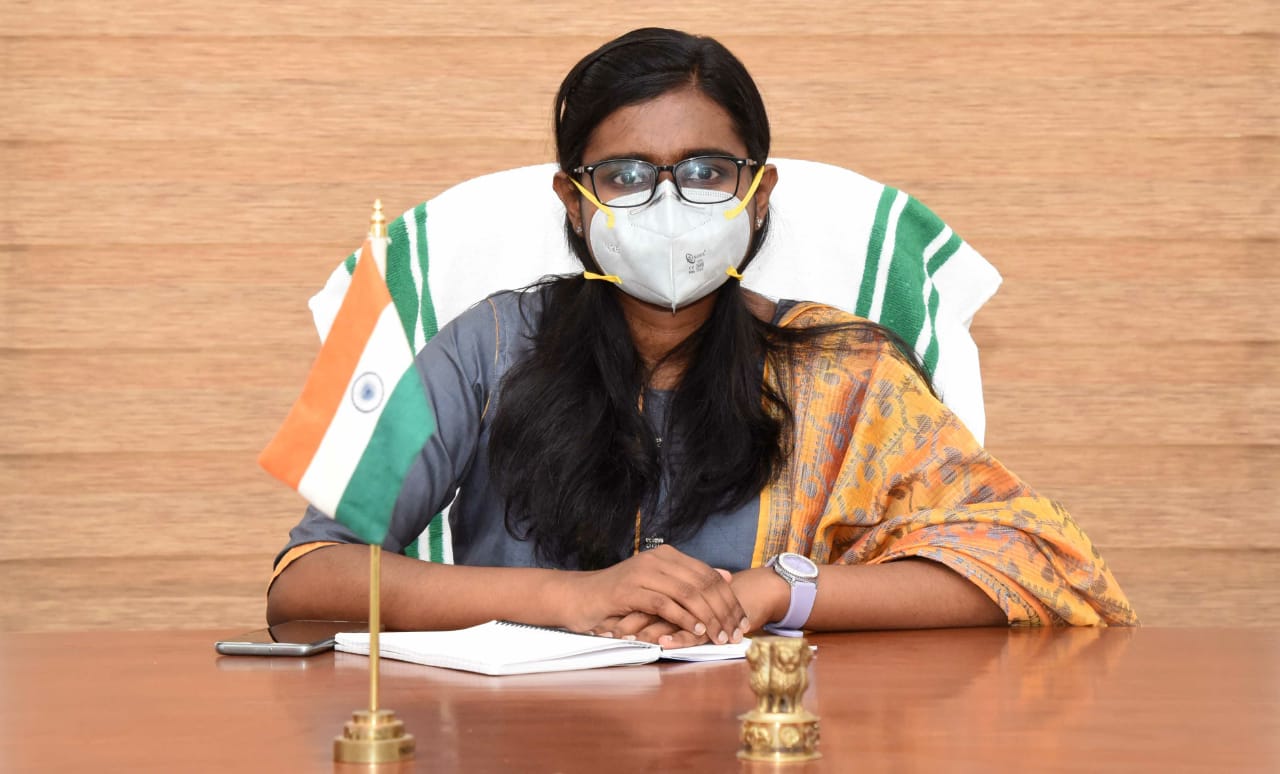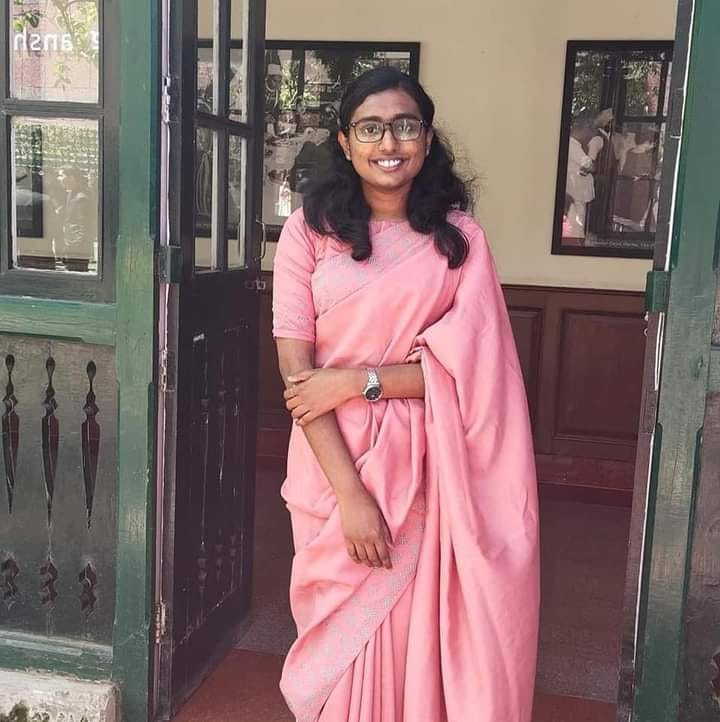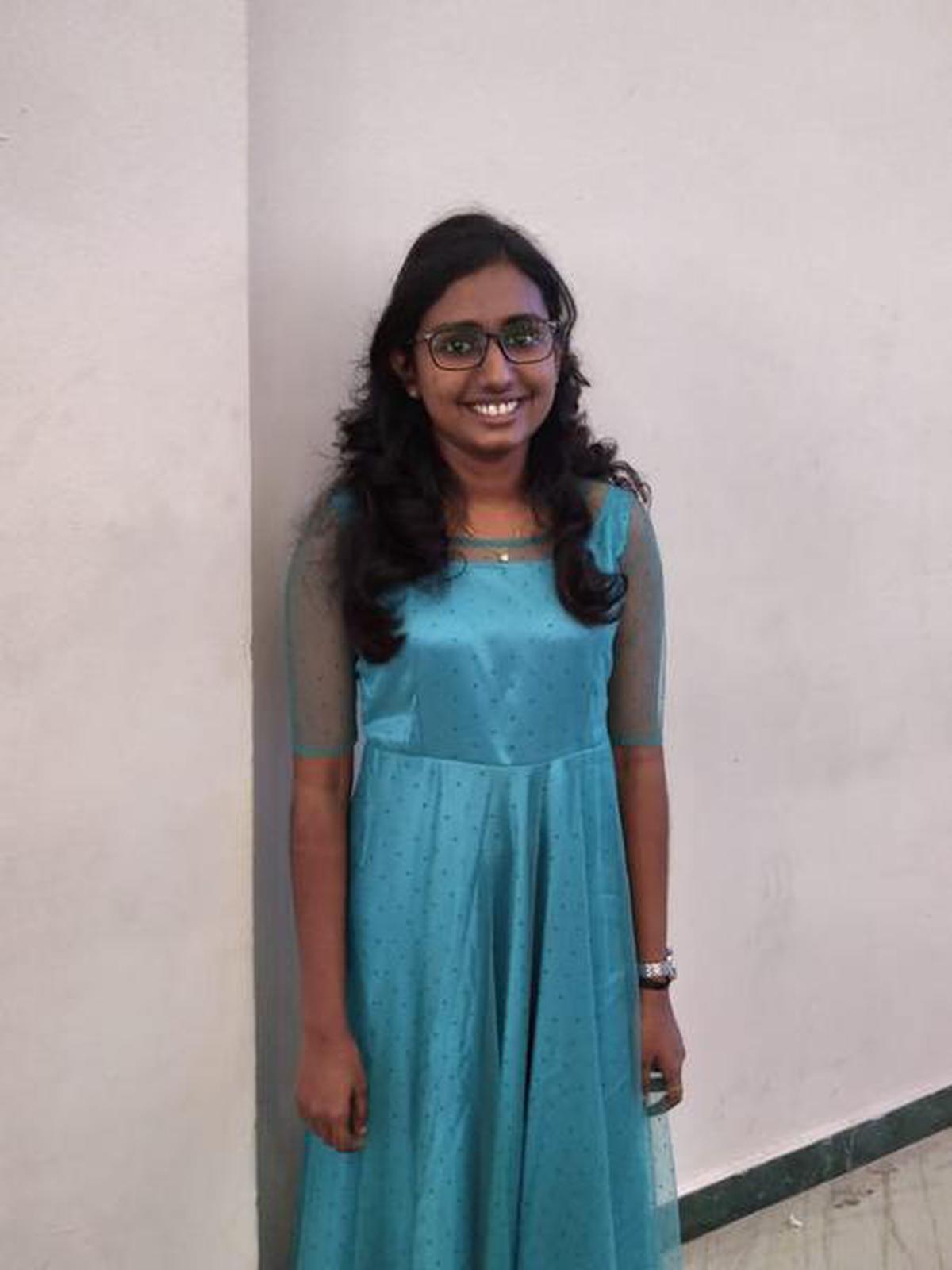
Sreelatha Menon/ Trissur
Safna is an example of how dreams come true, provided you dream hard enough and work towards them. And her dream was to be a change-maker in society; the route she chose was through the civil services.
Safna Nazaruddin, who secured 45th ranking in the country in the UPSC examination in 2020, became the youngest Muslim woman IAS officer from Kerala at the age of 23.
Today, she is the Labour Commissioner in communist Kerala, having already completed her stint as Collector at Malappuram. And her advice is to chase one’s dream for assured success.
"You should have a dream, and it should be your dream. It is sure to come true,’’ says Safna, speaking recently to a group of aspirants and the general public at a gathering. "Mine was to become an IAS officer. Yours could be anything. But it should not be something you are pursuing because your parents or someone else wants it,‘’ she said.
 Safna Nazaruddin in her office during the Covid-19 pandemic
Safna Nazaruddin in her office during the Covid-19 pandemic
Safna says she began dreaming about becoming an IAS officer ever since she was in 8th grade, without even knowing what it meant. “I just knew that an IAS officer can do a lot for society and bring about positive changes,” she says in another interview.
Seeing her father work up from the lowest level to retiring as an inspector in Kerala police, and her mother too working in the Employment exchange as a typist, she was used to the pattern of discipline and hard work.
Her parents always backed her in her dreams as she worked for it as if there was no tomorrow. She opted for a degree in social sciences and humanities, much against her father’s wishes, as he wanted her to take the science stream.
She was a topper from the Kendriya Vidyalaya and could have easily opted for any stream, but she opted for social sciences.
As a degree student of Economics, she again topped Kerala University. She decided to start preparing for the UPSC exams immediately, rather than go for a master’s or any other course.
Her mentors at the Fortune IAS Academy credit her success to her planned approach, her humility, and her receptive nature towards learning. ``We advise many people, but not everyone takes it, ‘’ says the director of the institute about the meticulous planning and self-improvement efforts Safna put into her preparation for the IAS exams.
 Safna Nazaruddin
Safna Nazaruddin
She had difficulty speaking in public, but overcame it by practising speaking on selected topics daily, standing in front of a mirror as advised by her mentors at the Fortune Academy.
As for knowledge of content, she followed a routine that included no social media, two hours of newspapers, attending her classes at Fortune, and self-study in the remaining time. She studied for 7-10 hours daily, but as per a plan that she followed rigorously.
Her plan included an hour of hanging out with friends after her classes.
However, she religiously maintained a notebook in which she wrote down notes on whatever she read or studied. This helped her revise them over the weekend.
She had difficulty speaking in public, but overcame it by practising speaking on selected topics daily, standing in front of a mirror as advised by her mentors at the Fortune Academy.
As for knowledge of content, she followed a routine that included no social media, two hours of newspapers, attending her classes at Fortune, and self-study in the remaining time. She studied for 7-10 hours daily, but as per a plan that she followed rigorously.
 Safna Nazaruddin
Safna Nazaruddin
Her plan included an hour of hanging out with friends after her classes.
However, she religiously maintained a notebook in which she wrote down notes on whatever she read or studied. This helped her revise them over the weekend.
Today, having already spent some years as an IAS officer, starting as deputy collector at Malappuram district in Kerala, she says that it is not completely true that bureaucrats are under political pressure all the time.
"There are obstacles we face, as there are many stakeholders in everything we are dealing with. SO the interests of all these have to be taken into account till you arrive at a solution that benefits everyone, she says, addressing a public gathering. As for time for her personal life, she says being an IAS officer does not eat into all her time. ` There are days when meetings can go on till late at night. But there are other days when one is comparatively free. It is like any other work of responsibility,’’ she says.
Safna says her dream to become an IAS officer was triggered as a student in Kendriya Vidyalaya in her social sciences class, where she learnt about different communities and ethnic groups; the haves and have-nots in society. She felt that she was much more privileged and should work for those who are disadvantaged. That reinforced her childhood dream of becoming an IAS officer.
ALSO READ: Ayisha Abdul Basith shows how religion can empower one to rise in life
Today, as Labour Commissioner, she is a busy woman dealing with the issues of migrant labour, irregular labour, and unemployment issues, perhaps putting in the same passionate and planned approach that helped her succeed in her UPSC examinations.
